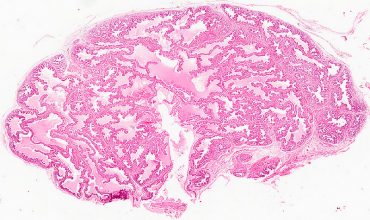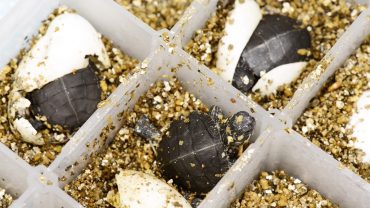Cheryl Rosenfeld

Jan. 27, 2020
The taming of the brain
Russian silver foxes that have been tamed show changes in their brains. | photo provided by Anna Kukekova Bond LSC scientist delves into how domestication alters the fox brain By Roger Meissen | Bond Life Sciences Center You might be familiar with the idiom “don’t bite the hand that feeds you,” but when it comes to a certain lineage of tame Russian silver foxes it’s quite literal. After more than 50 generations of breeding, these tame foxes likely offer insight into how selective breeding leads to domestication, and scientists dove deeper to look at what…

March 15, 2016
Seminal work
How unruly data led MU scientists to discover a new microbiome By Roger Meissen | MU Bond Life Sciences Center This seminal vesicle contains a newly-discovered microbiome in mice. Some of its bacteria, like P. acnes, could lead to higher occurrences of prostate cancer. | contributed by Cheryl Rosenfeld It’s a strange place to call home, but seminal fluid offers the perfect environment for particular types of bacteria. Researchers at MU’s Bond Life Sciences Center recently identified new bacteria that thrive here. “It’s a new microbiome that hasn’t been looked…

April 16, 2015
BPA overrides temperature to decide turtle sex
The environmental build-up of bisphenol A (BPA) can result in a life-changing shift for aquatic animals. For painted turtles, exposure to this chemical can disrupt sexual differentiation,, according to new research in the General and Comparative Endocrinology. Scientists at the University of Missouri have teamed up to show how low levels of certain endocrine disruptors like BPA can cause males to possess female gonadal structures in newly-hatched turtles. This collaboration between MU, Westminster College, the U.S. Geological Survey (USGS) and the Saint Louis Zoo exposed turtle eggs to levels of BPA similar to those currently found in the environment.